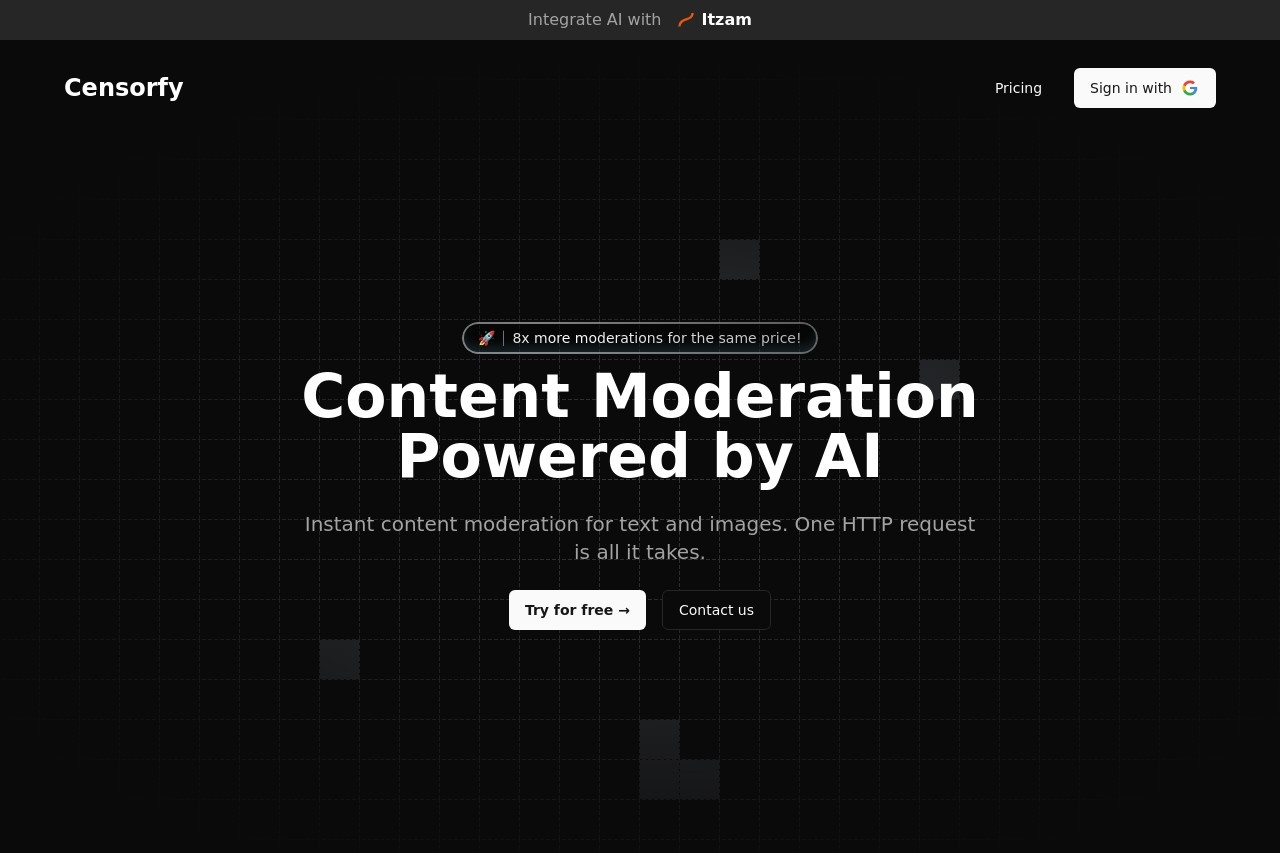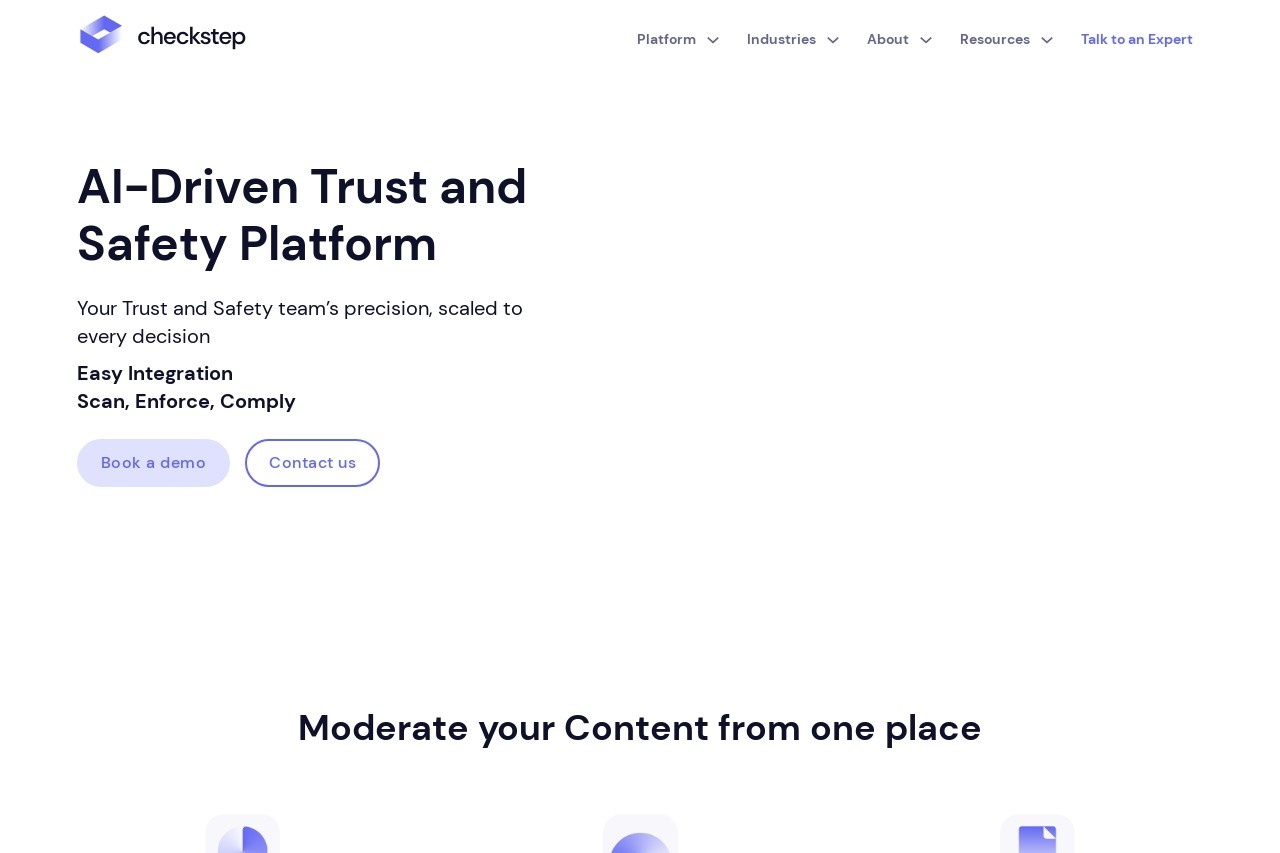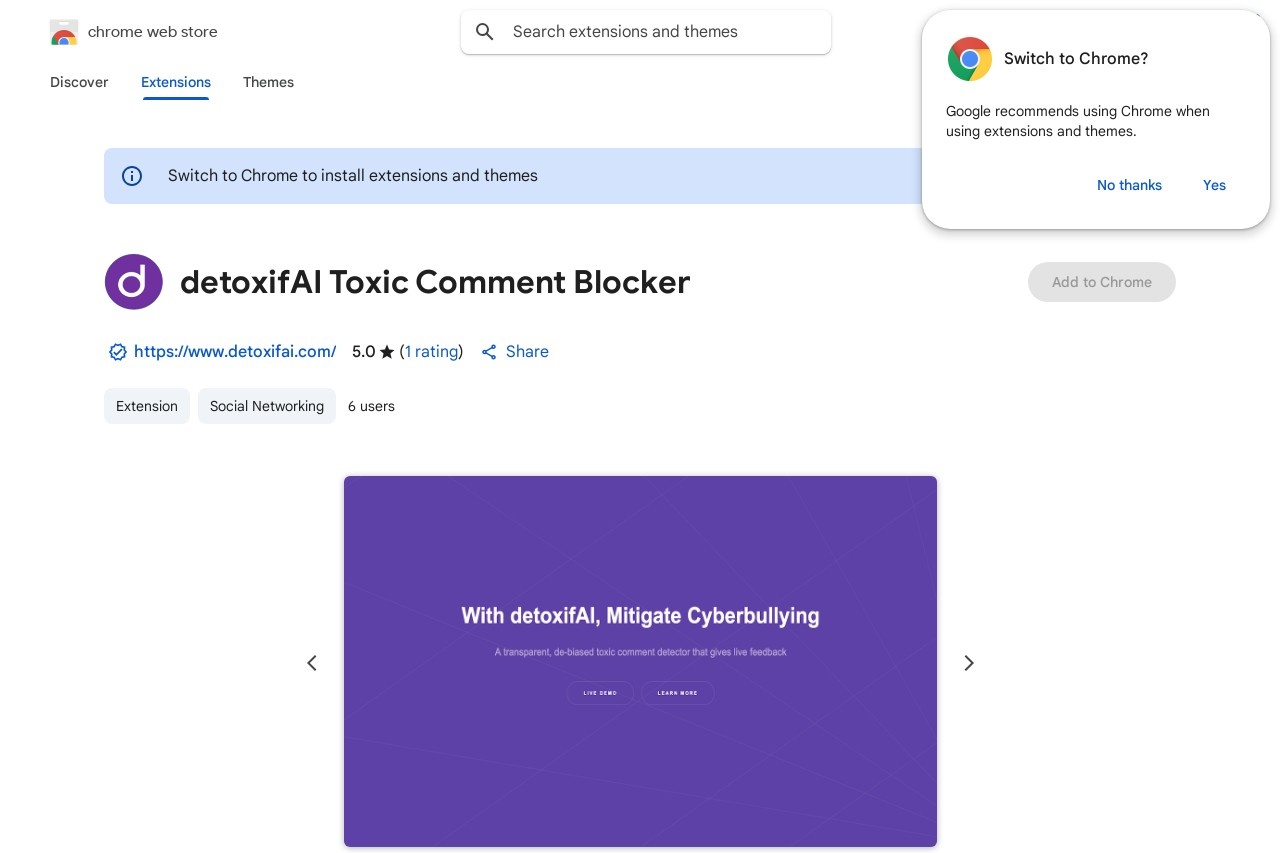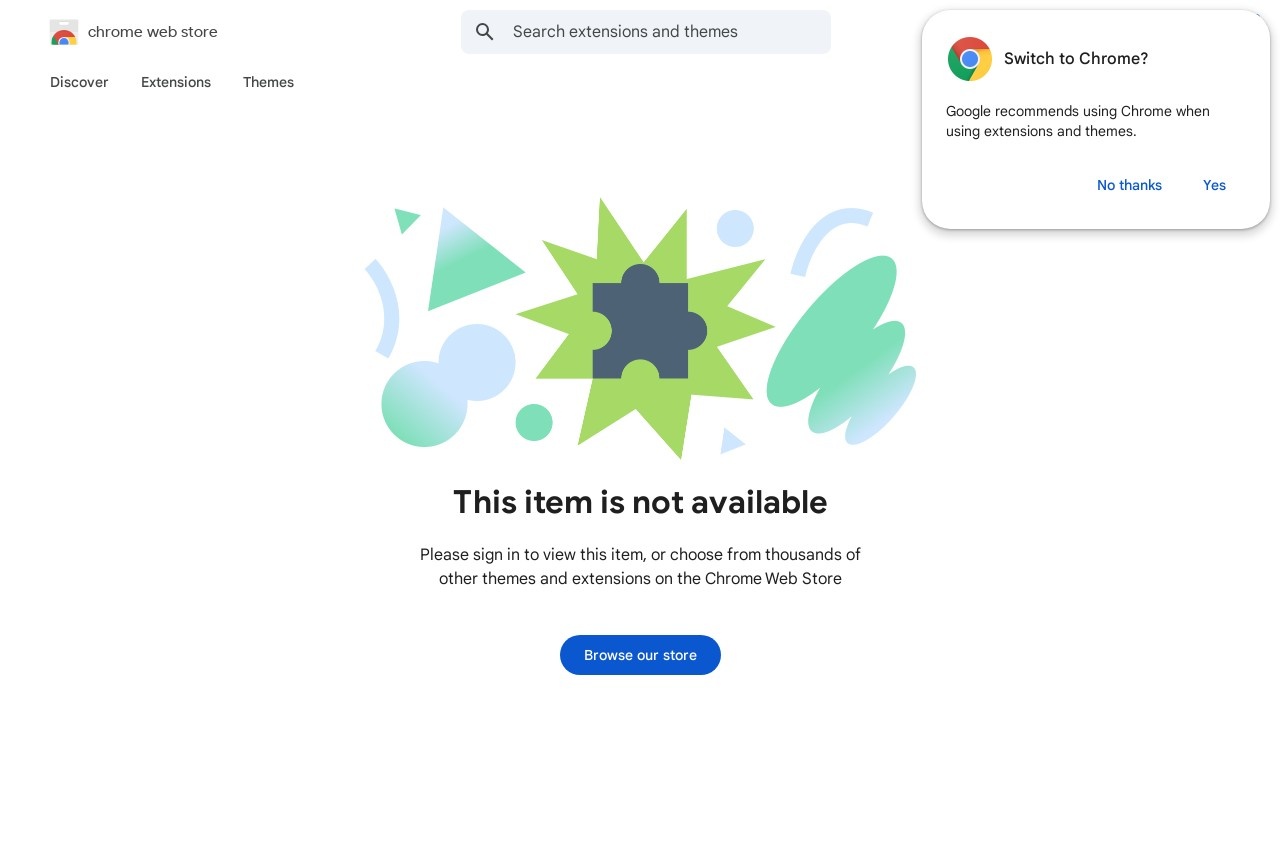Censorfy
Censorfy: Content Moderation via a Single HTTP Request
In today's digital landscape, content moderation is essential for maintaining safe and compliant online platforms. Censorfy offers a streamlined solution by enabling real-time content analysis through a single HTTP request. Designed for developers and businesses, this API-driven service simplifies the process of filtering inappropriate or harmful content.
How It Works
Censorfy's lightweight API integrates seamlessly into your existing infrastructure. By sending a POST or GET request with the content you wish to analyze, you receive an immediate response with:
- Moderation flags: Identifies explicit, violent, or hate speech content
- Confidence scores: Percentage-based likelihood of policy violations
- Contextual analysis: Detects nuanced threats like cyberbullying or self-harm references
Key Benefits
Unlike complex moderation systems requiring manual review, Censorfy delivers three core advantages:
- Instant scalability: Processes millions of requests daily without performance degradation
- Multi-language support: Analyzes text in 15+ languages with regional slang detection
- Regulatory compliance: Helps meet GDPR, COPPA, and other digital safety requirements
Implementation Example
Integrating Censorfy typically requires less than 10 lines of code. Here's a conceptual workflow:
- User submits content on your platform
- Your server forwards the text to Censorfy's API endpoint
- Within 300ms, you receive a JSON response with moderation data
- Your application acts based on the returned risk assessment
Use Cases
From social media startups to enterprise collaboration tools, Censorfy serves diverse applications:
- Automated filtering of user-generated content
- Protection against brand-damaging comments
- Prevention of harassment in community forums
- Compliance auditing for regulated industries
By handling the complexities of content analysis through a simple API call, Censorfy allows developers to focus on building their core products while maintaining community standards.

















